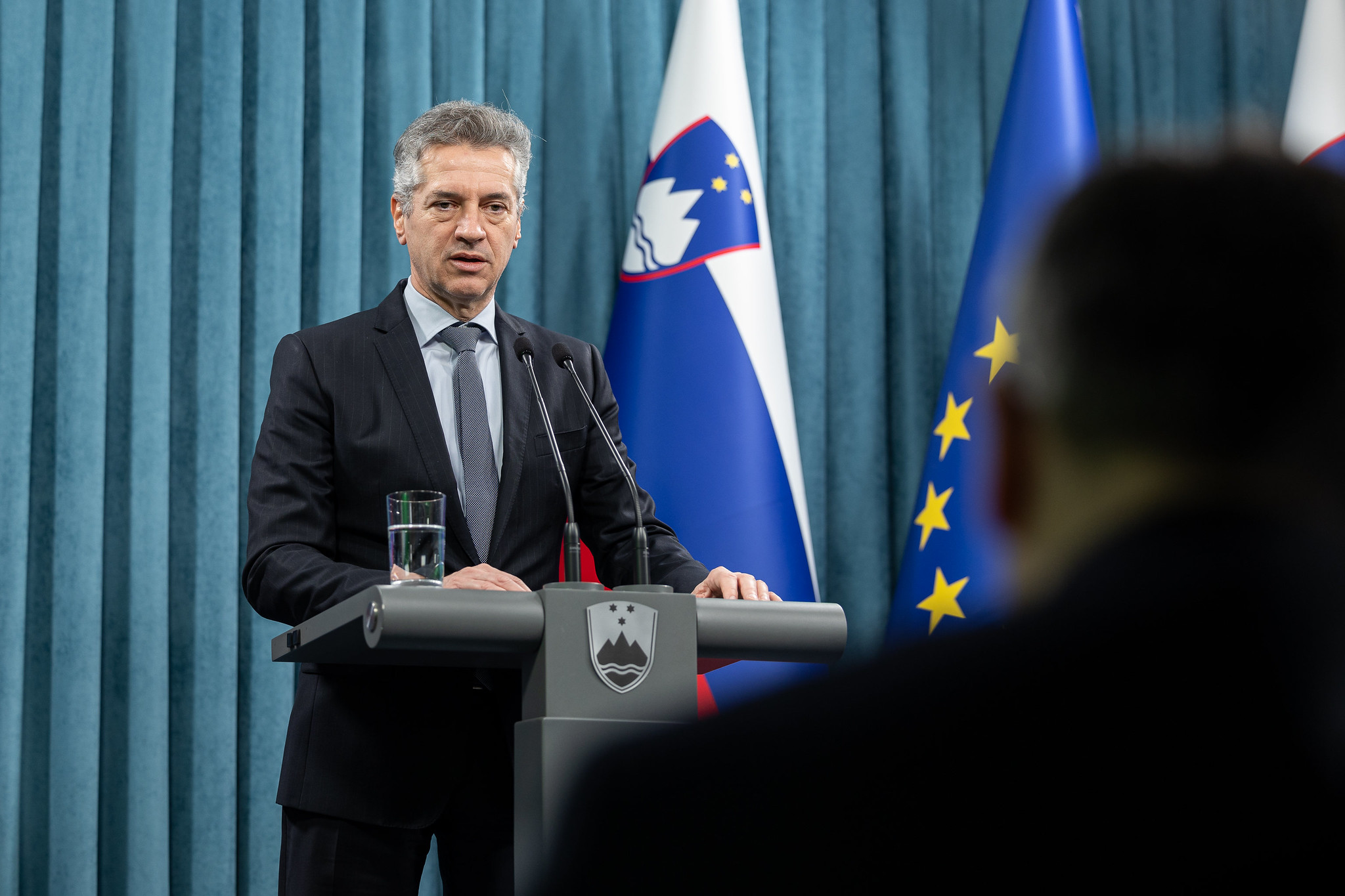
Published 05/31/2024 13:36 | Edited 06/01/2024 09:33
This Thursday (30), the Slovenian government approved a motion to recognize the Palestinian state, following in the footsteps of Spain, Norway and Ireland, who made the same decision two days earlier. The measure still needs to be voted on by Parliament, where Prime Minister Robert Golob’s liberal coalition has a comfortable majority, making approval all but guaranteed.
“Today, Slovenia decided to recognize Palestine as an independent and sovereign state,” Golob told Ljubljana press. To symbolize the decision, the government raised the Palestinian flag alongside the Slovenian and European Union flags.
Read too: Spain, Norway and Ireland officially recognize Palestine as a State
Golob highlighted that this “is a message of peace”, calling for an immediate ceasefire between Israel and Hamas in Gaza and the release of Israeli hostages captured in the October 7, 2023 attacks.
International reactions
The Slovenian measure follows the trend of growing support for the recognition of Palestine. Currently, more than 140 UN member countries, including Brazil, recognize Palestine as a state. With this decision, Slovenia becomes the tenth country in the European Union to make this recognition official.
Israeli Foreign Minister Israel Katz criticized the Slovenian decision, saying approval would “amount to rewarding” Hamas and strengthen the “Iranian axis of evil.” He called on Slovenian MPs to reject the proposal.
Read too: Brazil defends recognition of Palestine at the UN
Other European countries have also taken significant measures. Irish Prime Minister Simon Harris has called on Israel to stop the humanitarian crisis in Gaza. “We wanted to recognize Palestine at the end of a peace process, but we made this movement alongside Spain and Norway to keep the miracle of peace alive,” said Harris.
Norwegian Chancellor Espen Barth Eide highlighted his country’s historic role in mediating the Oslo Accords and reiterated Norway’s commitment to the Palestinian cause. “For more than 30 years, Norway has been one of the most ardent supporters of a Palestinian state,” said Eide.
Context of the conflict
The conflict in Gaza, which began with a Hamas attack in October 2023, resulted in severe retaliation by Israel. Since then, more than 36,000 Palestinians have died, according to authorities in the Gaza Strip. The Israeli offensive has caused great destruction and displacement of civilians, with 81,000 people injured, the majority of them women and children (around 75%).
Read too: Deaths, arrests and espionage: Palestinian journalist exposes Israel’s ‘apartheid’
Slovenian approval and recognition by other European countries are seen as a response to the escalation of violence and deteriorating humanitarian conditions in Gaza. Currently, ten of the 27 members of the European Union officially recognize Palestine: Sweden, Cyprus, Hungary, Czech Republic, Poland, Slovakia, Romania, Bulgaria, Spain and Ireland. Other countries, such as Malta, the United Kingdom and Australia, are considering adopting the same measure.
Check below the complete list of countries that approve the recognition of the Palestinian State.
- Afghanistan
- South Africa
- Albania
- Angola
- Antigua and Barbuda
- Saudi Arabia
- Algeria
- Argentina
- Azerbaijan
- Bahamas
- Bahrain
- Bangladesh
- Barbados
- Belarus
- Belize
- Benin
- Bolivia
- Bosnia
- Botsuana
- Brazil
- Brunei
- Bulgaria
- Burkina Faso
- Burundi
- Bhutan
- Cape Verde
- Cambodia
- Kazakhstan
- Chad
- Chile
- China
- Cyprus
- Colombia
- (islands) Comoros
- Congo
- North Korea
- Costa do Marfim
- Costa Rica
- Cuba
- Djibouti
- Dominica
- Egypt
- The Savior
- United Arab Emirates
- Ecuador
- Spain
- Slovakia
- Eswatini (formerly Swaziland)
- Ethiopia
- Filipinas
- Gabon
- Gambia
- Gana
- Georgia
- Granada
- Guatemala
- Guiana
- Guinea
- Guinea Bissau
- Equatorial Guinea
- Haiti
- Honduras
- Hungary
- Yemen
- India
- Indonesia
- Will
- Iraq
- Ireland
- Iceland
- Jamaica
- Jordan
- Kuwait
- Laos
- Lesotho
- Lebanon
- Liberia
- Libya
- Madagascar
- Malaysia
- Malawi
- Maldives
- Mali
- Morocco
- (Mauricio Islands
- Mauritania
- Mexico
- Mozambique
- Mongolia
- Montenegro
- Namibia
- Nepal
- Nicaragua
- Niger
- Nigeria
- Norway
- Oman
- Papua New Guinea
- Pakistan
- Paraguay
- Peru
- Poland
- Qatar
- Kenya
- Kyrgyzstan
- Central African Republic
- Democratic Republic of Congo
- Dominican Republic
- Czech republic
- Romania
- Rwanda
- Russia
- Saint Lucia
- Saint Kitts and Nevis
- Sao Tome and Principe
- Saint Vincent and the Grenadines
- Senegal
- Sierra Leone
- Serbia
- Seychelles
- Syria
- Somalia
- Sri Lanka
- Sudan
- Southern Sudan
- Sweden
- Suriname
- Tajikistan
- Thailand
- Tanzania
- Timor read
- Togo
- Trinidad and Tobago
- Tunisia
- Turkmenistan
- Türkiye
- Ukraine
- Uganda
- Uruguay
- Uzbekistan
- Vanuatu
- Venezuela
- Vietnam
- Zambia
- Zimbabwe
__
with agencies
Source: vermelho.org.br

